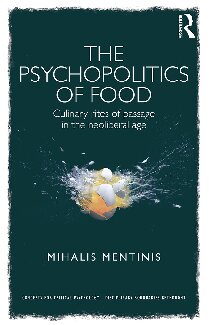

Most ebook files are in PDF format, so you can easily read them using various software such as Foxit Reader or directly on the Google Chrome browser.
Some ebook files are released by publishers in other formats such as .awz, .mobi, .epub, .fb2, etc. You may need to install specific software to read these formats on mobile/PC, such as Calibre.
Please read the tutorial at this link: https://ebookbell.com/faq
We offer FREE conversion to the popular formats you request; however, this may take some time. Therefore, right after payment, please email us, and we will try to provide the service as quickly as possible.
For some exceptional file formats or broken links (if any), please refrain from opening any disputes. Instead, email us first, and we will try to assist within a maximum of 6 hours.
EbookBell Team

4.1
100 reviewsThe Psychopolitics of Food probes into the contemporary ‘foodscape’, examining culinary practices and food habits and in particular the ways in which they conflate with neoliberal political economy. It suggests that generic alimentary and culinary practices constitute technologies of the self and the body and argues that the contemporary preoccupation with food takes the form of ‘rites of passage’ that express and mark the transition from a specific stage of neoliberal development to another vis-à-vis a re-configuration of the alimentary and sexual regimes.
Even though these rites of passage are taking place on the borders of cultural bi-polarities, their function, nevertheless, is precisely to define these borders as sites of a neoliberal transitional demand; that is, to produce a cultural bifurcation between ‘eating orders’ and ‘eating dis-orders’, by promoting and naturalising certain social logics while simultaneously rendering others as abject and anachronistic.
The book is a worthwhile read for researchers and advanced scholars in the areas of food studies, critical psychology, anthropology and sociology.